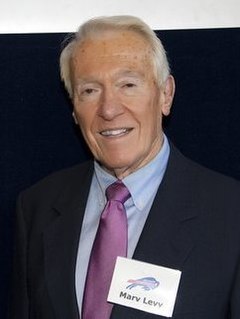A Quote by Alana Stewart
Bitterness and resentment only hurt one person, and it's not the person we're resenting - it's us.
Quote Topics
Related Quotes
Resentment always hurts you more than it does the person you resent. While your offender has probably forgotten the offense and gone on with life, you continue to stew in your pain, perpetuating the past. Listen: those who hurt you in the past cannot continue to hurt you now unless you hold on to the pain through resentment. Your past is past! Nothing will change it. You are only hurting yourself with your bitterness. For your own sake, learn from it, and then let it go.
The word resentment means to re-feel...to feel again. Someone wrongs or wounds you; in resenting it, you re-feel the injury. And you re-hurt yourself. The Hebrew Talmud says that a person who bears a grudge is "Like one who, having cut one hand while handling a knife, avenges himself by stabbing the other hand."
When an injustice happens, we want to be vindicated. People feel that if they forgive the person who hurt them, then they will continue to take advantage of them or not take responsibility for what they did wrong. If we're honest, we'll admit that we usually want the person who hurt us to pay for what they did. We can't get past this until we get the revelation that only God can pay us back. He is our Vindicator - He will heal and restore us if we will trust Him and forgive our enemies as He has told us to do.
Not forgiving prolongs hurt and anger and leads to smoldering resentment, which will make us miserable until it kills us. Resentment destroys the perception of reality. As we try to bend the world to accommodate our resentment, fear, and selfishness, we become less accurate in understanding the world. This eventually destroys our ability to cope successfully with life.
Successful leaders develop effective strategies for maintaining their boundaries. ... Most time bandits don't know any better. And being a time bandit is a matter of context. One person's time bandit is another person's pleasant diversion. ... Instead of gritting our teeth to be polite and resenting the time bandit for holding us up, the best choice is to be honest. We cannot expect another person to honor our needs unless we affirm them ourselves.
People say, "I have heart disease," not "I am heart disease." Somehow the presumption of a person's individuality is not compromised by those diagnostic labels. All the labels tell us is that the person has a specific challenge with which he or she struggles in a highly diverse life. But call someone "a schizophrenic" or "a borderline" and the shorthand has a way of closing the chapter on the person. It reduces a multifaceted human being to a diagnosis and lulls us into a false sense that those words tell us who the person is, rather than only telling us how the person suffers.
The sadistic person is as dependent on the submissive person as the latter is on the former; neither can live without the other. The difference is only that the sadistic person commands, exploits, hurts, humiliates, and that the masochistic person is commanded, exploited, hurt, humiliated. This is a considerable difference in a realistic sense; in a deeper emotional sense, the difference is not so great as that which they both have in common: fusion without integrity .
We forgive, if we are wise, not for the other person, but for ourselves. We forgive, not to erase a wrong, but to relieve the residue of the wrong that is alive within us. We forgive because it is less painful than holding on to resentment. We forgive because without it we condemn ourselves to repeating endlessly the very trauma or situation that hurt us so. We forgive because ultimately it is the smartest action to take on our own behalf. We forgive because it restores to us a sense of inner balance.
I got the sense that he was the kind of person who couldn't hold anger for more than a few minutes, because it just wasn't in him. It could never grow into resentment or bitterness, and I knew then that he was the kind of man who would be married forever. And I decided then and there that I should be the one to marry him.




































